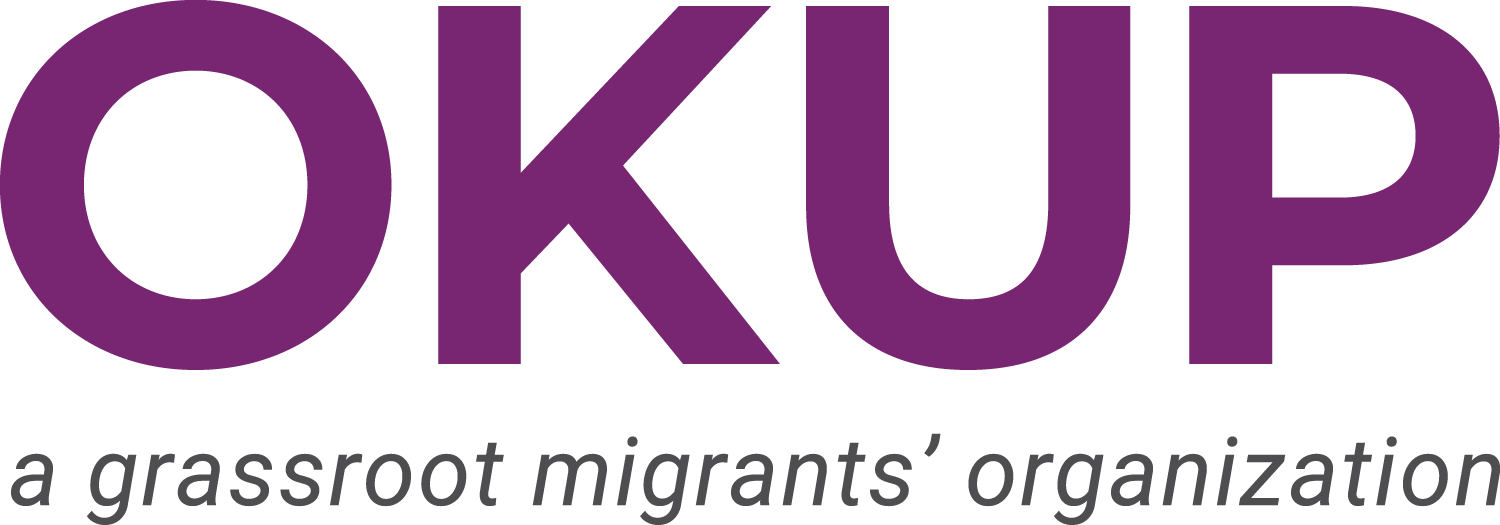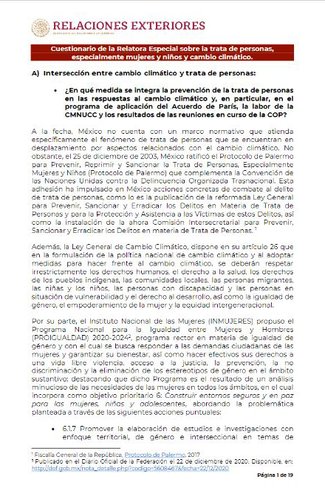Cuestionario de la Relatora Especial Sobre la Trata de Personas, especialmente Mujeres y Niños y Cambio Climático.
2022
- Author
- Secretaría de Relaciones Exteriores de Mexico
- World region
- Latin America and Caribbean
- Origin of migration
- Tarahumara region, Mexico
- Area of transit
- No data available
- Destination of migration
- Chihuahua, Ciudad Juárez
- Who is affected
- Indigenous communities
- Type of climatic event
-
Slow-onset event
Drought resulting from deforestation.
- Type of migration/mobility
-
Internal, Rural to urban
The impacts of climate change have led to food scarcity and health problems, and have put pressure on individuals to migrate to urban areas.
- Destination industry or sector
-
No data available
- Type of modern slavery
-
Human trafficking
- Link between climate change, migration and modern slavery
- Indirect
- Key vulnerability factors
-
People's vulnerability to modern slavery is worsened by racism, discrimination, stereotyping and the consequent violation of the rights of minority groups and indigenous communities. Specific factors that increase the vulnerability of indigenous people to modern slavery include: dependence on renewable natural resources, residence in areas vulnerable to climate change (i.e. tropical rainforests, high mountains, costal zones and arid and semi-arid lands), poor recognition of their rights and institutions, loss of land and forced displacement. Women and girls are particularly vulnerable to modern slavery in the context of climate change due to gender inequality, which also manifests in lower education levels (especially among rural and indigenous populations) and labour market exclusion.
- Summary
-
Mexico's submission presents a wide range of legal and policy measures addressing climate change and human trafficking. They recognise that human trafficking in the context of climate change is a particular threat to those people most likely to experience discrimination and that certain population groups, such as indigenous peoples, women and girls, and people with disabilities, are especially exposed. Climate change and vulnerability to modern slavery are also worsened by extractive business activities.
- Recommendations
-
States should increase their efforts to protect women, girls and LGBTQI+ people while they are on the move. Mexico's Intersecretarial Commission on Climate Change should adopt a disability lens in its work. Human rights legislation should be harmonised and public policies should adopt an intercultural perspective. Efforts should be made to combat vulnerability to modern slavery, including in the context of climate change. A specific legal framework to prevent and protect against discrimination is also needed.



